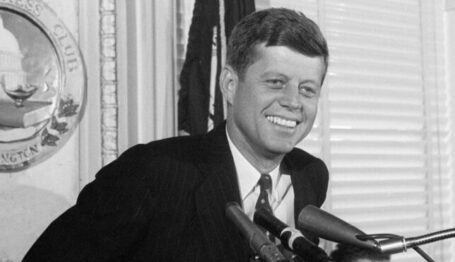Labor Watch
Al Sharpton and the Unions
The infamous preacher/politician/TV host gets money and more from organized labor
From the “Subway Vigilante” and Tawana Brawley cases to the Pigs in a Blanket movement, the Rev. Al Sharpton has been a controversial public figure for more than three decades, first in New York and then nationwide. Today, he is one of the most influential people in the country, closely tied to the mayor of the nation’s largest city and to the President of the United States. And much of his influence and his financing can be traced to his ties to labor unions.
Al Sharpton has spent decades bringing attention to real and (in most cases) imaginary abuses committed by law enforcement officials and their allies. He has brought together mobs to demand the imprisonment of innocent people on such charges as rape and murder. He and his followers have filled the air with threats of “no justice, no peace,” and they have defined “justice” without regard to the truth. He is considered the father of the Pigs in a Blanket movement that in recent months has inspired shootings of police officers from New York to Missouri to Texas to Kentucky.
He depends on the largesse of Big Business. He has his own TV show on the MSNBC “news” channel, and is a top advisor to, and unofficial agent of, President Barack Obama.
Politico in 2014 called him the President’s “go-to” person on race. By May 2015, he had visited the President and/or his senior appointees at the White House more than 100 times. Since taking office, the President twice has been the featured speaker at the annual convention of Sharpton’s nonprofit organization, National Action Network.
And, for much of his funding and organizational support, Sharpton depends on labor unions. Without realizing it, millions of Americans who pay union dues—voluntarily or involuntarily—help make the Al Sharpton phenomenon a reality.
On the Left
On issues big and small, Sharpton has taken a Far Left position. He called for the diversion of pension funds into infrastructure projects and other “investments,” long a pet goal of his mentor, the Reverend Jesse Jackson. In 2001, he was arrested while protesting U.S. Navy practice bombings on the Puerto Rican island of Vieques, along with other public figures such as Robert Kennedy Jr., the actor Edward James Olmos, and Dennis Rivera, then head of the nation’s largest union local, Local 1199 (SEIU Healthcare Workers East).
In 2003, he likened the Democratic Leadership Council—the party faction once headed by Bill Clinton—to segregationists. “They don’t call themselves the Dixiecrats now, they call themselves the DLC,” he said.
In subsequent years, he seemed to be everywhere, running for president in 2003-2004, then establishing his organization, National Action Network, as a touchstone in national Democratic politics.
Sharpton declared the Second Amendment outdated, noting that “People do not have the right to unregulated rights in this country.” When radio commentator Rush Limbaugh tried to buy part of the St. Louis Rams football team, Sharpton attempted to block the deal, an effort that was successful. [Click HERE for the rest of the article.]



